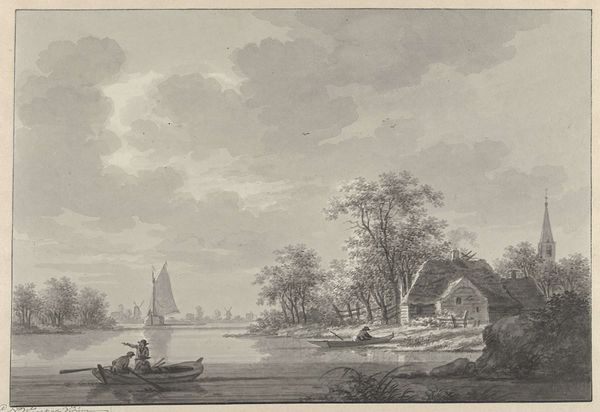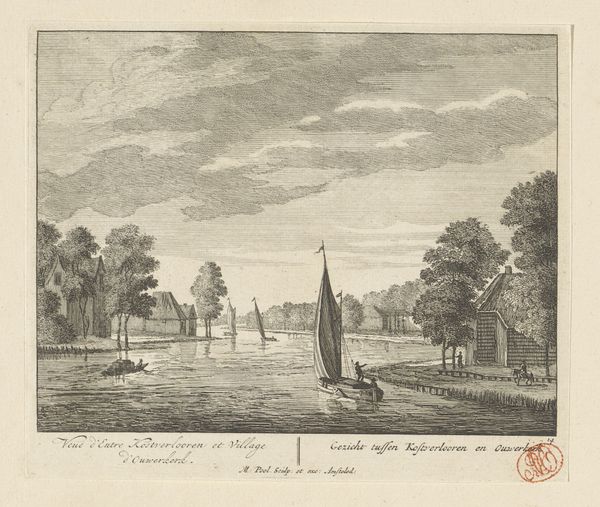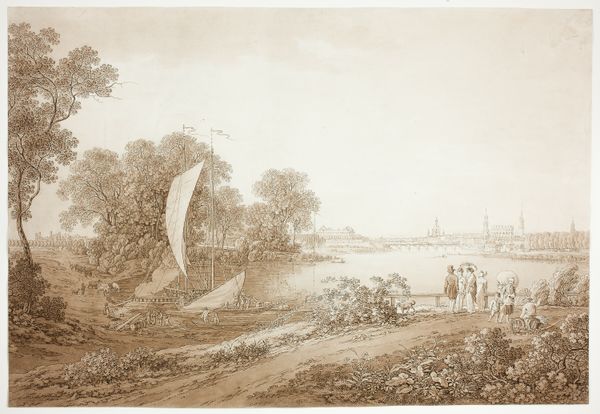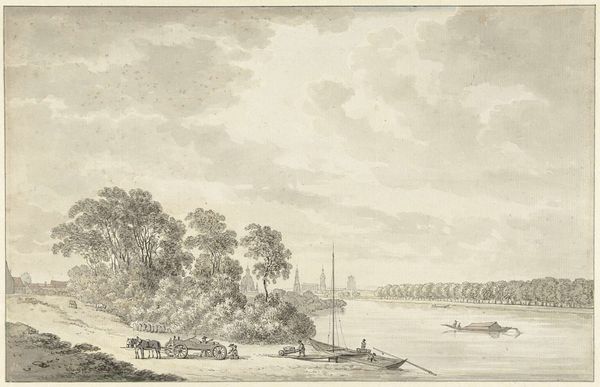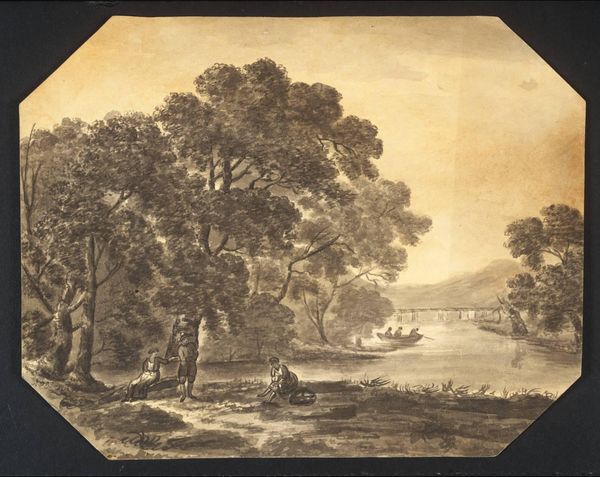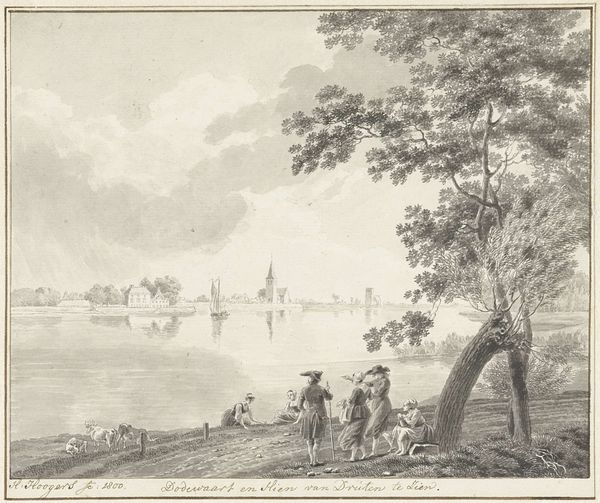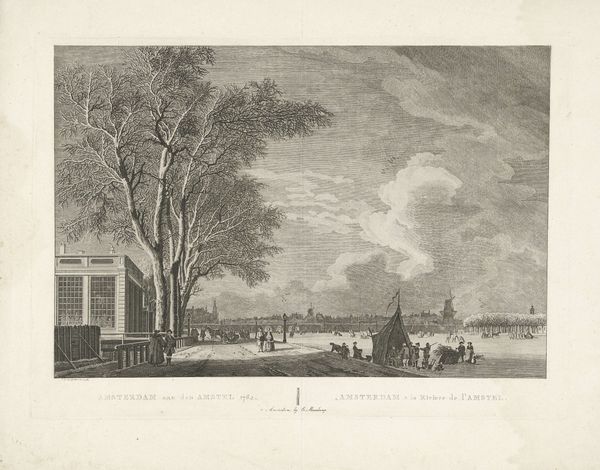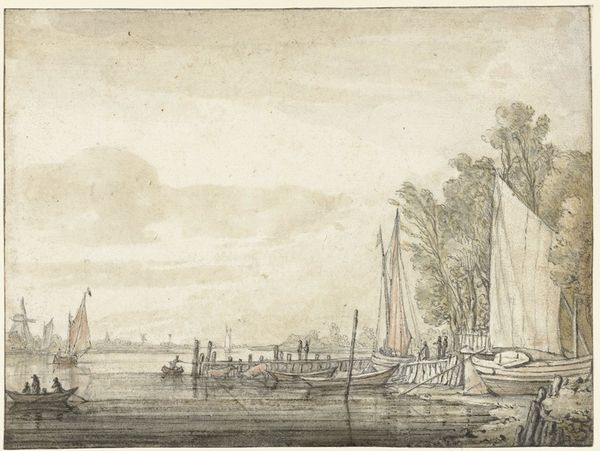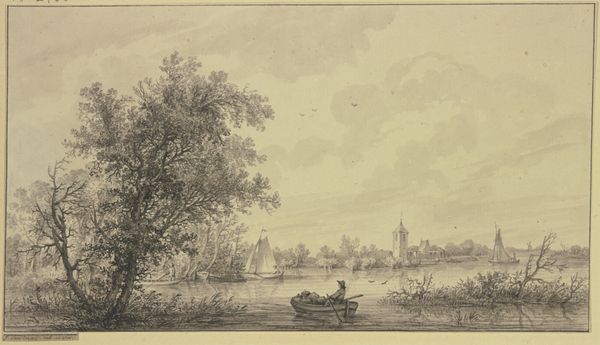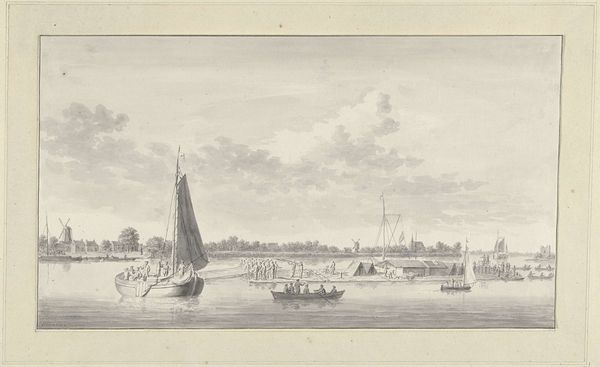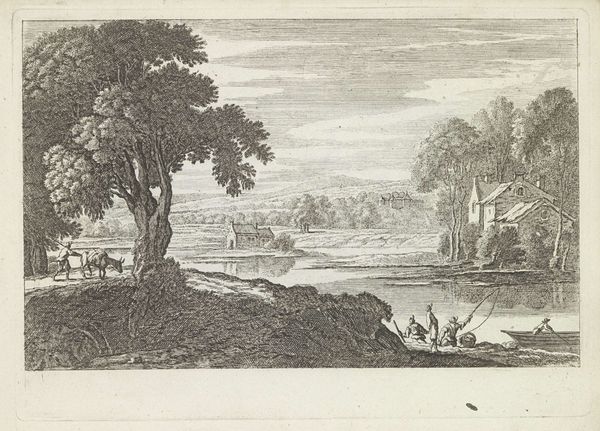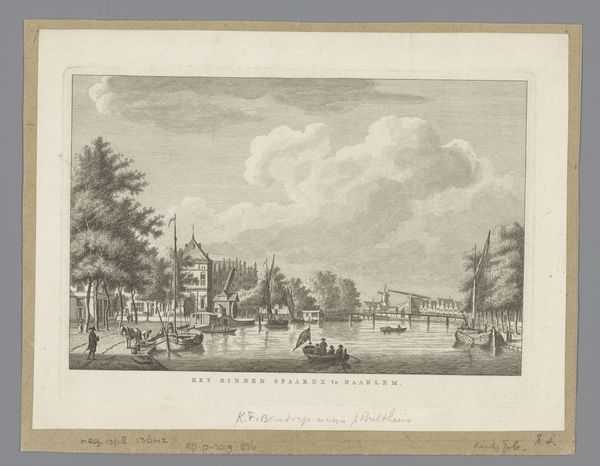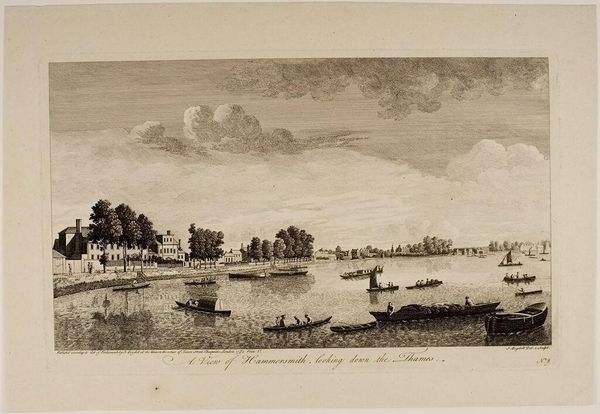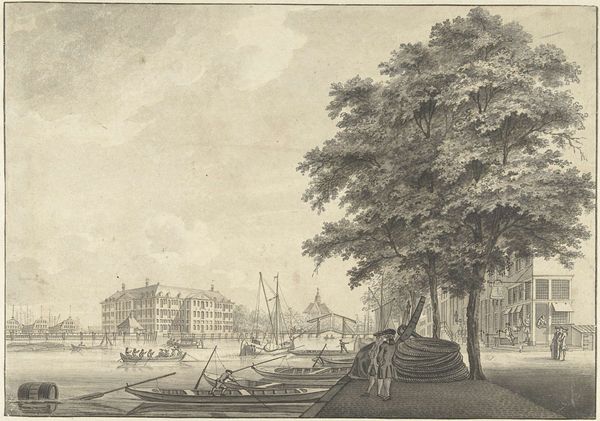
drawing, watercolor, pencil
#
drawing
#
pencil sketch
#
landscape
#
etching
#
watercolor
#
romanticism
#
pencil
#
watercolour illustration
#
watercolor
Dimensions: height 376 mm, width 477 mm
Copyright: Rijks Museum: Open Domain
Curator: What is your first reaction to Hendrik Hoogers's 1802 watercolor and pencil drawing, "Gezicht over de Rijn op Rhenen?" It's currently held at the Rijksmuseum. Editor: It’s gorgeous, in a very quiet way. The muted tones give it a dreamy quality, and the composition, with the cows wading in the water in the foreground and the town in the distance, it all just feels so peaceful. I find it amazing how such simple materials can convey so much. What catches your eye? Curator: "Quiet" is a great way to describe it. For me, it’s the reflection. The way the buildings shimmer in the water, mirroring the real world. It reminds me that reality is often just a pale imitation, and the soul often seeks more vivid and fulfilling landscapes. Makes you wonder about Hoogers's state of mind. Did he feel a sense of belonging or perhaps an ache for something beyond the horizon? Do you get any sense of nostalgia looking at it? Editor: Definitely a hint of longing. It's funny you mention that because now I am thinking it might not be that peaceful, there's almost a sense of detachment with the detailed buildings so far in the distance, perhaps even a slight melancholic tone. Do you think the Romanticism movement plays a part in this emotional tone? Curator: Absolutely! Romanticism was all about tapping into emotions, and finding beauty in the sublime, but it was also about revealing and reflecting the internal struggle and emotions that everyday existence fails to resolve. That tree on the right, so lush and full of life, seems to cradle those wading cows while turning away from the city. Does that contrast get you thinking at all about the dichotomy between urban life and rural serenity? Editor: It certainly does. It also now makes me appreciate the delicate balance Hoogers achieved between objective representation and emotional expression. It's a seemingly simple scene that is far deeper than it seems at first glance. Curator: Exactly! Now that we see the artist has left something of himself, through technical execution and thematic composition, the landscape transforms into a portrait of the soul, a timeless mirror reflecting our human desire for connection and contemplation.
Comments
No comments
Be the first to comment and join the conversation on the ultimate creative platform.
